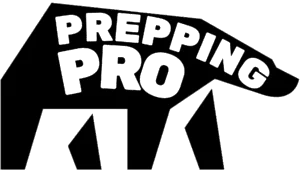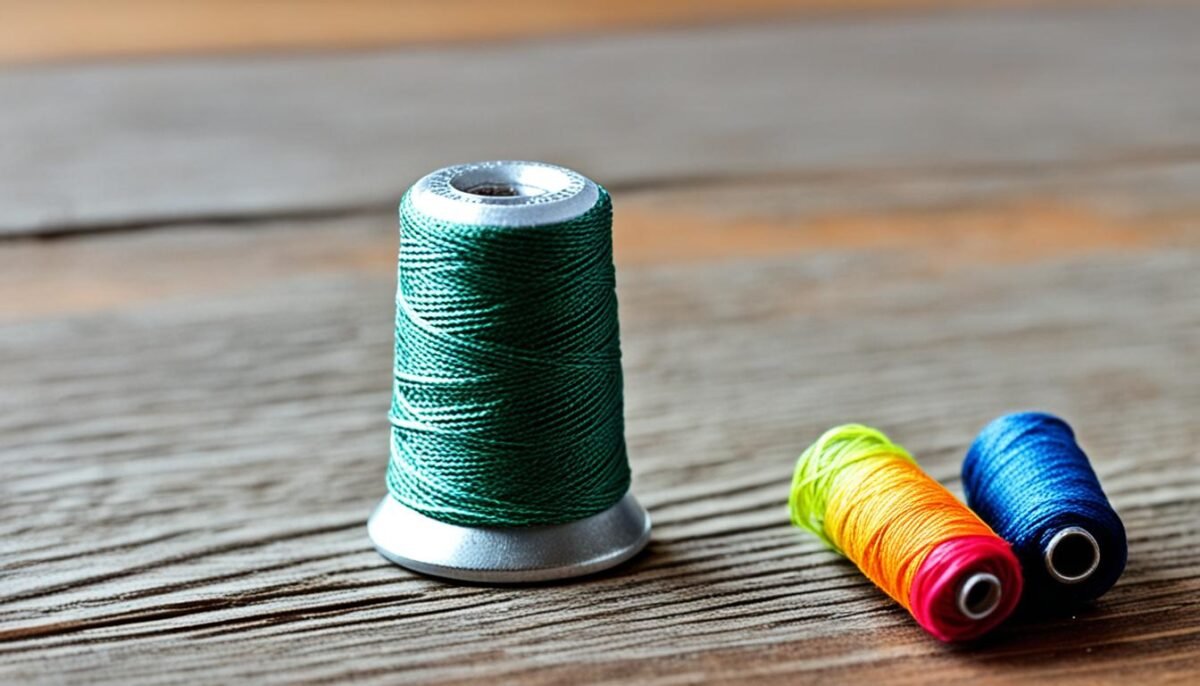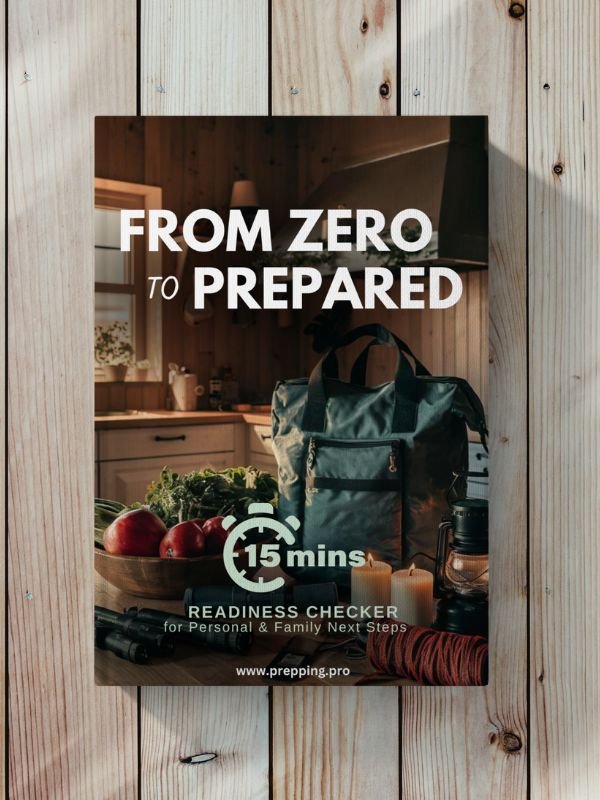There’s a certain charm and fulfillment derived from creating with our hands, bringing to life a vision through careful crafting and intricate workmanship. This is best reflected in a saying by Saint Frances of Rome – “It is most laudable in a married woman to be devout, but she must never forget that she is a housewife. And sometimes she must leave God at the altar to find Him in her housekeeping“. Sewing is one such creative form where hands become the vehicle of creation, adding a personal touch to everyday items.
Commencing your path on sewing calls for the assembly of a sewing 101 kit starter, an essential step for crafting with ease. This sewing basics starter kit should include fundamental tools that assist in a variety of projects. The idea is to gradually grow this collection, adding tools that can streamline your workflow and save time. The decision to purchase a dependable sewing machine, like the Brother CS6000i, which is acclaimed for its efficiency, coupled with additional accessories such as a walking foot or an extension table, can significantly enhance your sewing experience. In addition, investing in an organized sewing basket or drawer system to categorize and store your sewing tools proves to be advantageous, ensuring easy access to all equipment. As a budding seamstress or tailor, a well-structured and detailed sewing basics starter kit inspires a promising start to your creative journey.
Key Takeaways
- A sewing basics starter kit is fundamental for an easy start to sewing.
- Beginners must consider enhancing their kit by adding tools that aid in streamlining their workflow and saving time.
- Purchasing a reliable sewing machine, like the Brother CS6000i, is a foundational step for any beginner.
- Having an organized system, like a sewing basket or drawer, to store and categorize tools enhances productivity.
- The presence of an efficient sewing 101 kit starter fuels a promising journey into the world of sewing.
Table of Contents
Introduction to Sewing for Newbies
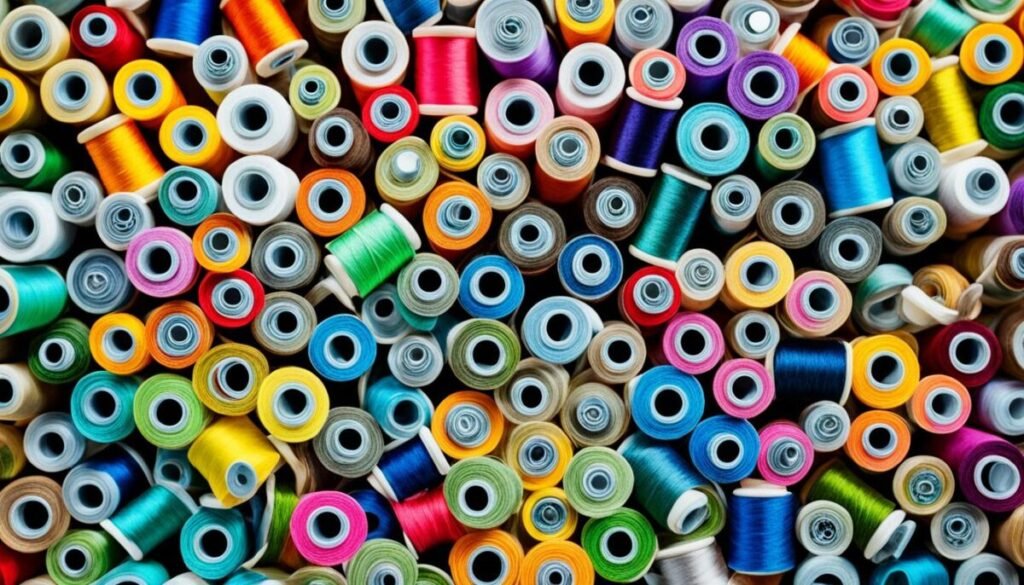
Welcome to the captivating world of sewing! As a newcomer, you’ll realize that creating beautiful pieces requires more than just raw skill. It’s the harmonious blend of creativity, patience, technique, and perhaps most importantly, the right tools. As I plunged myself into this realm, understanding the vital nature of being well-equipped was a lesson I learned early on. Ensuring you have the beginner sewing essentials on hand is instrumental in smoothly navigating your projects. Sewing supplies for newbies must be comprehensive and cater to the most basic requirements, ensuring you never have to halt progress due to a missing component.
Welcome to the World of Sewing
Your sewing journey begins with assembling a beginner sewing kit essentials checklist. This checklist helps you piece together a personalized sewing starter pack tailored to your style and project preferences. A well-thought-out list can act as a guiding light, illuminating your path as you start this creative journey.
Navigating Your First Trip to the Fabric Store
Approaching the fabric store for the first time might seem overwhelming due to the wide array of sewing tools for beginners. Herein lies the importance of making a concise list of indispensable items for your sewing starter pack before you venture into the vastness of fabrics, patterns, and tools on offer. Going in with a clear plan can transform your shopping experience, making it enjoyable and productive. Do yourself a favor and approach your first fabric store venture as a well-researched, informed buyer, ready to assemble the ultimate beginner sewing kit essentials.
Demystifying the Sewing Machine
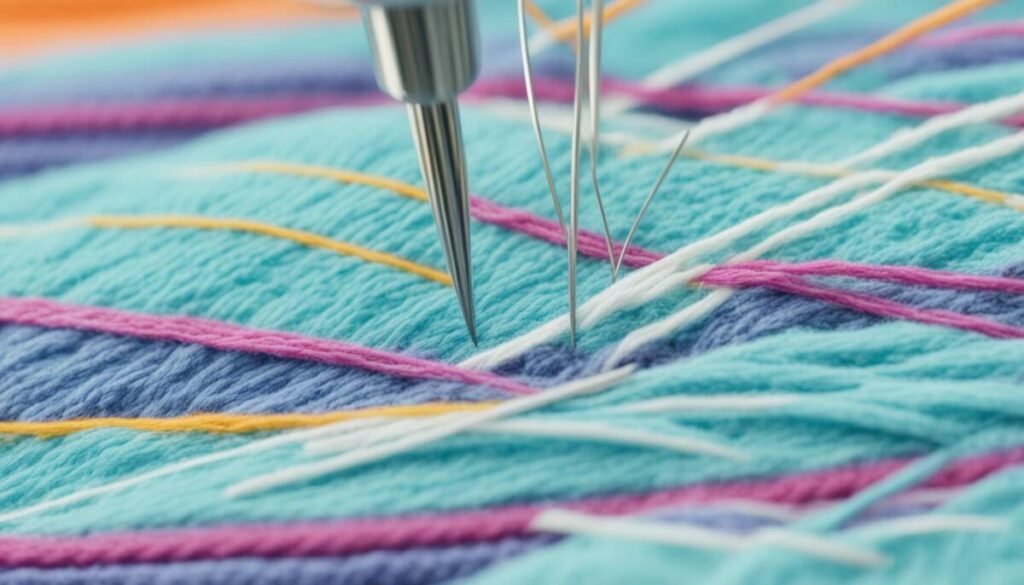
Dipping your toes into the world of sewing is an exciting journey that can be simplified with the right sewing machine for beginners. A first-rate sewing machine should not simply be rich in features, but also foster a seamless learning curve for newcomers. In that spirit, let’s shine a spotlight on two available options that lead in both areas: the Brother CS6000i and the EverSewn 20-80.
| Brand | Model | Key Features | User Ratings |
|---|---|---|---|
| Brother | CS6000i | Built-in free arm, adjustable sewing speed, automatic needle threader, and includes a wide table ideal for larger projects. | 4.7/5 |
| EverSewn | 20-80 | Modern aesthetic, 80 stitches with up to 49 decorative stitching options, impeccable stitch quality, intuitive controls, and a compact size perfect for portability. | 4.6/5 |
A sewing machine for beginners should be efficient, user-friendly, and versatile enough to accommodate your growing skills. Both Brother CS6000i and EverSewn 20-80 not only tick these boxes but also enjoy positive user reviews for their robust build, easy-to-understand instructions, and a wide variety of stitching options.
- Brother CS6000i: With its built-in free arm, automatic needle threader, and adjustable sewing speed, the Brother CS6000i is a firm favorite among beginners. The convenience of its wide table is also hard to ignore because it provides ample space for larger projects.
- EverSewn 20-80: EverSewn’s 20-80 model scores with its modern aesthetic, compact size, and impressive stitch quality. With up to 49 decorative stitches, it’s a machine that fosters creativity and skill advancement in beginners.
Remember, the perfect sewing machine for you is the one that best fits your individual needs, from the kind of projects you aim to undertake to your budget and space considerations.”
Moving forward, we hope this section helped clarify aspects of selecting a suitable sewing machine. As you continue to develop your sewing prowess, understanding the nuances of various machines will become an integral part of the process. Ultimately, the right sewing machine can be your steadfast companion on this creative journey, making sewing projects more efficient, enjoyable, and successful.
Sewing 101 Kit Starter: 13 Must-Have Supplies
Preparing your first sewing kit can seem like a daunting task. With so many tools and gadgets available, it’s hard to know what you really need. In this section, we’ll take a look at the essential items you’ll need to embark on your sewing journey, creating a basic sewing kit for beginners that will serve as your companion as you learn and grow in your craft.
Choosing the Right Fabrics and Patterns
Understanding different fabrics and patterns is key to successful sewing projects. Different fabrics react differently to stitches and require different kinds of care. Patterns, too, can greatly impact the difficulty of a project. As a newbie to the world of sewing, starting with easy-to-handle fabrics and simple patterns can make your introduction to this new hobby less stressful and more enjoyable.
The Essential Sewing Tools for Beginners
When assembling your sewing starter pack, there are certain tools you simply can’t do without. Let’s take a closer look at the must-haves for your beginner sewing kit:
1. Sewing machine
A reliable sewing machine is the cornerstone of home sewing. Brands like Brother and EverSewn offer models that are easy for beginners to use and understand, yet come with a wide range of features that can accommodate your growing skills.
2. Thread + organizer
Quality thread is crucial in getting the best results from your sewing projects. Starting out, you’ll just need a few basic colors of good all-purpose thread, like those from Gutermann or Coats & Clark. To keep your threads neat and easy to find, don’t forget to include a thread organizer in your sewing kit for beginners.
3. Fabric scissors
Fabric scissors are an indispensable part of any sewing kit, crucial for making precise cuts in your fabrics. Make sure to pick a pair specifically designed for cutting fabric, like the 8-inch shears from brands Gingher, Fiskar, or Havel’s, to ensure clean cuts for your projects.
4. Fabric chalk
Fabric chalk or vanishing ink markers provide temporary markings on your fabric that aid in accurate cutting and stitching, making them a lifesaver for beginners.
5. Measuring tape
Whether it’s taking body measurements or measuring fabrics, a quality measuring tape is essential in achieving accurate results.
6. Seam ripper
No one is perfect, and mistakes happen. When they do, a seam ripper is here to save the day. This sharp tool quickly removes unwanted stitches, allowing you to give it another go.
7. Lots of bobbins
Having plenty of bobbins on hand will save you a lot of time in the long run. You’ll find it much easier to change thread colors if each color is already wound on its own bobbin.
8. Needles
Hand sewing needles and extra machine needles of various sizes are a must in a beginner sewing essentials. Schmetz needles are a good choice for their high-quality and easy-to-read color coding.
9. Pins + holder
Pins are essential for holding fabric pieces together before sewing. A magnetic pin holder or pin cushion makes a great addition to your sewing kit to keep your pins easily accessible.
10. Seam gauge
This handy little tool is invaluable for measuring short lengths, like seam allowances and hems, with precision.
11. Spare fabric
Whether you’re testing stitches or practicing techniques, having some spare fabric around is a good idea. It allows you to experiment without fear of ruining your main material.
12. Iron + ironing board
Quality iron and ironing board will make your finished projects look truly professional. Choose models with features like non-drip and auto shut-off for added convenience.
13. Miscellaneous accessories
As your confidence and skills grow, other tools like a pressing ham, see-thru ruler, and a French curve set will become indispensable. These are not essential for beginners, but they are good investments as you progress in your sewing journey.
As you develop your skills and get the hang of it, you’ll find that these basic tools are plenty to take on a wide array of sewing projects. So get your sewing kit essentials and start your crafting journey today!
Developing Hands-On Sewing Skills
Embarking on your journey into the world of sewing involves more than just assembling a sewing basics starter kit. One of the essential sewing skills for beginners is understanding how to handle the tools of the trade. This includes tasks like correctly inserting needles into your machine and winding the bobbins. Technologies and tools may change, but these fundamental skills will stay the same, always providing a solid base for your work.
Inserting Needles and Winding Bobbins
As any professional will tell you, the right needle can make a significant difference in your project’s success. Learning how to properly insert needles into your sewing machine is a crucial component of the sewing skills for beginners. Similarly, knowing how to proficiently wind bobbins is another fundamental task. Incorrectly wound bobbins can lead to thread jams and a host of other problems that can interrupt your sewing flow.
Mastering Threading and Tension Techniques
Along with inserting needles and winding bobbins, mastering threading and tension techniques is another fundamental sewing skill for beginners. Threading your sewing machine properly ensures a smoother sewing process, preventing issues like uneven stitches or thread breakage.
Tension control is also critical to achieving the stitch quality you want. Too much tension, and your fabric will pucker, too little, and you might experience thread looping or snagging. With an easy sewing kit for beginners, you’ll have everything you need to practice these vital skills and start your sewing journey on the right foot.
Having the right skills in your toolbox makes all the difference in the world when it comes to pursuing a hobby or a profession. Each of the skills mentioned above will not only help you use your sewing basics starter kit more effectively but also ensure you have a solid foundation to build upon as you continue your journey in sewing.
Embarking on Your First Sewing Project
Embarking on your first sewing project is a significant milestone in the journey of learning to sew. As a beginner, it’s important to appreciate this momentous step and gift yourself the freedom of learning, experiencing, and growing. It’s perfectly okay to not have everything figured out at the beginning, and be prepared to learn more with each passing project.
Getting started with sewing should not be a daunting task. Therefore, it’s advisable to start simple, choosing patterns and projects that match your current skill level. Embrace the process and remember, every sewist was a beginner once. With the right sewing tools for beginners and a well-thought-out sewing starter pack, you can very well turn your first sewing project into a tangible piece to be proud of.
“The beautiful thing about learning is that no one can take it away from you.” – B.B. King
With that in mind, here are some key factors to consider while planning your first project:
| Project Type | Difficulty Level | Required Sewing Tools |
|---|---|---|
| Pillow Covers | Easy | Sewing Machine, Fabric, Matched Thread, Scissors |
| Tote Bag | Easy | Sewing Machine, Fabric (at least 2 types for outer and lining), Matched Thread, Scissors, Pins |
| Apron | Medium | Sewing Machine, Fabric, Matched Thread, Scissors, Pins, Bias Tape |
| Simple Skirt | Medium | Sewing Machine, Fabric, Matched Thread, Scissors, Pins, Elastic Thread |
| Shirt | Hard | Sewing Machine, Fabric, Matched Thread, Scissors, Pins, Buttons, Buttonhole Foot or Attachment |
Embarking on your first sewing project could indeed be a moment of both excitement and nervousness. But remember, everyone learns at their own pace. Don’t compare your progress with others. Instead, dwell in the joy of learning and creating, and you will find that with every stitch and seam, your skills are improving and nothing could be more fulfilling.
Happy Sewing!
Conclusion
The journey into sewing is indeed a fascinating one and having a sewing basics starter kit by your side is like possessing the perfect companion for the ride. It empowers beginners and provides them with the essential tools and knowledge needed to confidently explore the world of sewing. Assembling a basic sewing kit is a vital component of the beginner’s experience and creates the foundation for the rewarding adventure that awaits. In turn, paving the way to numerous creative outcomes.
Choosing the right sewing machine forms a significant part of a beginner’s sewing journey. It’s where you take your first steps, and it serves as your workstation throughout the process. Along with a sewing machine, there are several sewing tools that deserve a place in your basic sewing kit for beginners. Threads, needles, fabric scissors, pins, measuring tapes, and a seam ripper will be your closest allies in sewing endeavors.
As you progress, developing hands-on sewing skills is integral. From threading to perfecting tension techniques, stitching to seam-ripping, every skill you learn furthers your creativity and craftsmanship. Armed with a well-equipped sewing basics starter kit, your first sewing project will soon be a joyful reality, the experience of which will be both educational and fulfilling. Therefore, when you step into this realm of creativity, do so with a well-stocked basic sewing kit for beginners.
In essence, sewing is a deeply rewarding journey, and having the right tools at your fingertips sets a strong base for it. Your sewing basics starter kit, strategically assembled, will become your foundation, carrying you forward through your growth and development in the vast, vibrant world of sewing.
